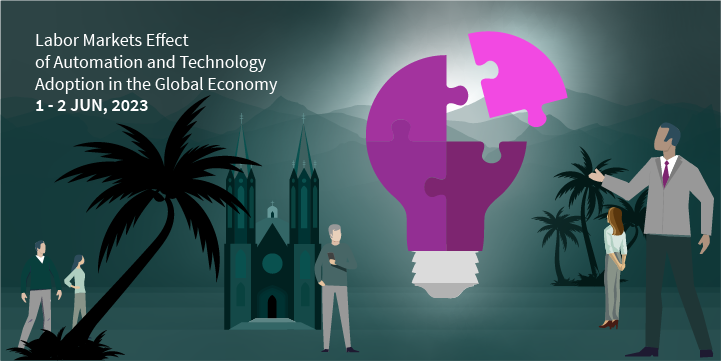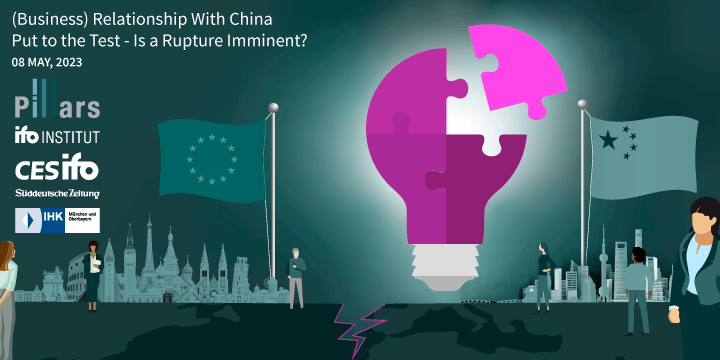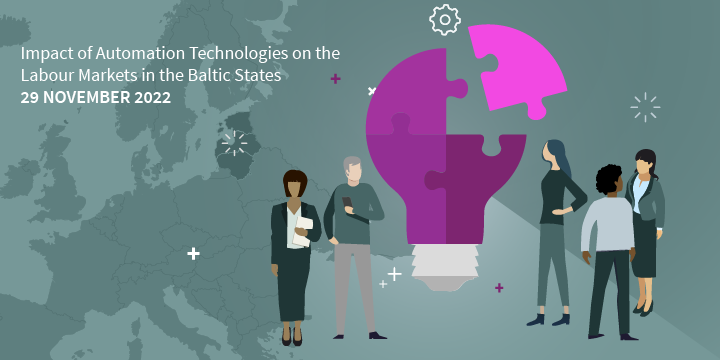Past events
Policy Tools and Guidelines for Inclusive Employment Strategies
Final Policy Workshop
13.12.2023, Brussels
The final policy workshop is designed for the policymakers and key stakeholders that stimulate inclusive labour markets in Europe. The workshop is structured in two parts.
The first part of the workshop aims to present and discuss the policy tools developed throughout the PILLARS project. The second part of the workshop will be devoted to sharing of the lessons learned across impactful recent/ongoing initiatives on the topic of inclusive labour markets and the future of work.
Digital Automation Technologies and the Future of Work(ers): A Policy Roadmap
PILLARS Policy Workshop
5 December 2023, London
In recent years, the accelerating pace of digital automation and its impact on jobs, skills demand and wage inequality has been unprecedented. As the UK aims to strengthen its global position in these technologies, academic research into future trends has become ever more relevant.
From emerging technologies to functional specialisation in skills and Global Value Chains (GVCs), there are a range of rapid technological and socioeconomic shifts with which policymakers are continuing to get to grips. Alongside knowledge of the impact of past waves of Information and Communication Technologies (ICTs), robotisation and Artificial Intelligence (AI) on labour markets and industrial transformation, new research will be invaluable for the critical decisions around investment, education, and skills training to ensure a just and inclusive transition.
This workshop, hosted by the University of Sussex and the Digital Catapult in central London, is a unique opportunity for key stakeholders in Government, NGOs and the private sector to engage the PILLARS Project research team as they pitch the project’s results and discuss their key policy implications. Find out more and register here.
In its agreement with film and television companies, the Writers Guild of America included not only pay increases, but also protections around artificial intelligence. Screenwriters are not the only ones fretting about their jobs as AI takes the world by storm: the stormy sounds are keeping many other types of workers, and policymakers foremost, awake at night. And AI is just one of the disruptive technologies being deployed.
So, how to future-proof the workforce, in the face of such technological disruption? This is the key issue the Pillars closing conference will delve into in Brussels on 14 November 2023, at the Representation of the Free State of Bavaria to the EU, to which you are most cordially invited.
Geography of Industries and Professions in Europe: Diversification Opportunities and Challenges
12-13 October 2023, Utrecht
The increasing penetration of digital automation technologies such as artificial intelligence and robots is likely to have a massive impact on regional labour markets in the years to come. This workshop aims to bring together scholars and practitioners across different fields to further our understanding of how regions can better address the challenges and seize the opportunities associated with the digital automation technologies.
AI, Digitalization, and Labor Outcomes
5-6 October 2023, Maison des Sciences Économiques (6th floor), 112 Bd de l'Hôpital, 75013 Paris
Beyond academic papers, the workshop will include high-level economists from the OECD, as well as a presentation of a Delphi survey of experts on recent trends in digitization, AI and outcomes for labor.
Workshop on good policy practices across the EU regions
29 June 2023, Brussels + online
The current workshop aims to discuss policy practices that make labour markets more inclusive, while capitalising on the opportunities created by automation technologies. The following policy areas will be in the focus of the workshop – education and training, labour market and employment, innovation and entrepreneurship, migration and labour mobility. The project team will present findings collected through desk research and ten regional case studies across the EU (namely, in Germany (Köln), Denmark (Nordjylland), Czech Republic (Prague), Estonia, France (Pays de la Loire), Malta, Portugal (Lisbon), Poland (Dolnoslaskie, Közép-Dunántúl), and Latvia).
CESifo Venice Summer Institute 2023
Technological Change and the Future of Work: Combining Disciplinary Approaches
21.-22.6.2023, Venice, Italy
There are worse things in life than decamping to a leafy island right across the water from San Marco in Venice. And if you can check the “work” box for it, well, that much better. SPRU and Pillars will be holding a workshop at the famed lagoon town in June 2023, devoted to combining different disciplinary approaches to tackle the effects that technological change will have on the future of work, instead of letting each discipline toil away on its own silo.
Scientific Organizers: Maria Savona and Oliver Falck
Labor Market Effects of Automation and Technology Adoption in the Global Economy
1-2 June 2023, Santiago de Chile
This workshop brought together a group of researchers working on topics related to automation, technological change, and labor markets in a global economy. We discussed theoretical and empirical contributions that help us understand the determinants of automation in an open economy and the impact of automation and technology adoption on firms and their workers.
(Business) Relationship with China Put to the Test - Is a Rupture Imminent?
8 May 2023, Chamber of Industry and Commerce for Munich and Upper Bavaria, Max-Joseph-Str. 2, 80333 Munich
Supply-chain turmoil during the covid crisis and also China's stance in the Ukraine war have made Germany and Europe aware of the risks that dependence on China can entail. Whereas economic policy and business decisions used to be based on economic criteria, geopolitical factors such as stability and political security are now increasingly coming to the fore.
What do all these developments mean for future business relations with China? How should Europe position itself?
Pillars-ifo-IHK Workshop: The Future of Work – How Novel Data Reveals Future Skills Needs
Arbeitswelt im Wandel: Wie lassen sich mit neuen Daten die Kompetenzen der Zukunft ermitteln?
23 March 2023, IHK für München und Oberbayern, Max-Joseph-Straße 2, 80333 München
It is a powerful line-up: Pillars is joining forces with the renowned ifo Institute and the Chamber of Commerce and Industry for Munich and Upper Bavaria to review how data can be leveraged to ascertain not only the state of skills availability, but also which skills will be needed in the future. A workshop, to be held in Munich March 23rd, will offer representatives of industry, public administration and politics a chance to discuss findings directly with Pillars and ifo researchers.
Regional Workshop
Impact of Automation Technologies on the Labour Markets in the Baltic States
29.11.2022, Riga (Latvia)
The current workshop aims to discuss the impact of automation technologies on the labour markets in the Baltic states (Estonia, Latvia and Lithuania), and to highlight policies in the region that have been designed to stimulate innovation and inclusion on the labour markets.
European Labor Markets - Mastering Technological and Structural Change
Conference
11-12 July 2022, Brussels
After one-and-a-half years of work, Pillars will share, discuss and enrich its interim results at a conference to be held on 11 and 12 July 2022 in Brussels.












